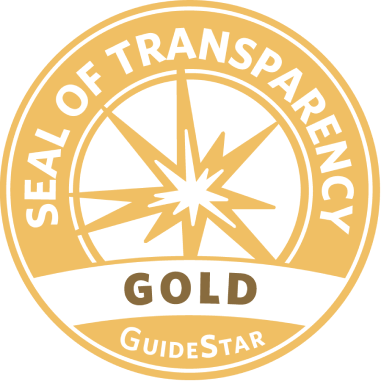Trauma has a profound impact on individuals, shaping their emotions, behaviors, and sense of self. For women who have endured abuse, violence, or systemic oppression, the journey to recovery can be challenging but transformative. With the right strategies and support, women can rebuild their lives, reclaim their voices, and thrive despite the difficulties they’ve faced.
At the Omid Foundation, we work with women from marginalized communities to help them overcome trauma and achieve personal empowerment. This article explores effective strategies for trauma recovery and shares inspiring success stories from women who have triumphed over adversity.
Understanding Trauma
Trauma is a response to deeply distressing events that overwhelm an individual’s ability to cope. It can be caused by physical or emotional abuse, neglect, violence, or systemic injustice. Trauma affects both the mind and body, often leaving survivors with lasting challenges.
Common Effects of Trauma on Women
Emotional Distress: Feelings of anxiety, depression, and emotional numbness.
Cognitive Challenges: Difficulty concentrating, memory problems, or intrusive thoughts.
Physical Symptoms: Chronic pain, fatigue, or sleep disturbances.
Relationship Struggles: Mistrust, fear of intimacy, or isolation from loved ones.
Women often face unique challenges in addressing trauma due to societal expectations, cultural stigmas, or a lack of accessible resources. Understanding these barriers is crucial for developing effective recovery strategies.
Strategies for Trauma Recovery
Recovery from trauma is not a linear process; it requires time, patience, and a holistic approach that addresses emotional, physical, and social needs. Below are some of the most effective strategies for helping women heal.
- Trauma-Informed Therapy
Professional counseling is a cornerstone of trauma recovery. Trauma-informed therapy ensures that the survivor’s experiences are acknowledged and respected, creating a safe space for healing.
Types of Therapy:
Cognitive Behavioral Therapy (CBT): Helps women identify and reframe negative thought patterns.
Eye Movement Desensitization and Reprocessing (EMDR): Focuses on processing traumatic memories.
Somatic Experiencing: Addresses how trauma is stored in the body through physical awareness and release.
At the Omid Foundation, we provide access to experienced therapists who specialize in trauma, ensuring that women receive compassionate, evidence-based care.
- Building Emotional Resilience
Resilience is the ability to adapt and recover from adversity. By developing emotional strength, women can regain control over their lives.
Steps to Build Resilience:
Mindfulness Practices: Meditation and deep breathing help regulate emotions and reduce stress.
Journaling: Writing about emotions can help process difficult experiences.
Gratitude Exercises: Focusing on positive aspects of life can shift attention away from pain.
Building resilience doesn’t eliminate the effects of trauma but provides the tools needed to cope and move forward.
- Community Support
Trauma often leads to isolation, but healing thrives in connection. Being part of a supportive community provides validation, encouragement, and a sense of belonging.
How Communities Help:
Offer spaces for sharing experiences and finding solidarity.
Provide practical support, such as childcare or vocational training.
Foster relationships that rebuild trust and confidence.
Peer support groups and community programs, like those offered by the Omid Foundation, empower women to heal together and learn from one another.
- Creative Expression
Art and creativity provide powerful outlets for processing trauma. Women can use painting, music, writing, or dance to express emotions that are difficult to articulate.
Benefits of Creative Expression:
Reduces stress and anxiety.
Encourages self-discovery and personal growth.
Builds confidence and a sense of accomplishment.
Incorporating creativity into recovery programs allows women to explore their identities and find new ways to connect with themselves and others.
- Vocational Training and Education
Economic independence is a vital aspect of trauma recovery. Many women recovering from trauma face financial insecurity, which can perpetuate feelings of helplessness.
Programs That Empower:
Skills training in areas like sewing, computer literacy, or entrepreneurship.
Education initiatives that provide women with qualifications and confidence.
Career counseling to help women re-enter the workforce.
Through vocational programs, the Omid Foundation helps women regain financial stability and autonomy, fostering long-term resilience.
- Self-Care and Well-Being
Self-care is an essential but often overlooked component of trauma recovery. Prioritizing physical and emotional health enables women to reclaim a sense of agency and self-worth.
Self-Care Practices:
Regular exercise to release tension and improve mood.
Balanced nutrition to support physical and mental health.
Adequate rest to promote healing and reduce fatigue.
Encouraging women to care for themselves sends a powerful message: their well-being matters, and they deserve to feel whole again.
Stories of Resilience
The following stories highlight the incredible strength and determination of women who have overcome trauma with the help of supportive strategies and communities.
Maria’s Story: From Silence to Strength
Maria endured years of domestic abuse that left her feeling powerless. When she joined a support group at the Omid Foundation, she found a safe space to share her story and connect with other women who understood her pain.
Through trauma-focused therapy and vocational training, Maria rebuilt her confidence and started a small business. Today, she is an advocate for other survivors, proving that healing is possible with the right support.
Amina’s Journey: Reclaiming Her Voice
Amina grew up in a community where speaking out about trauma was taboo. She struggled with depression and self-doubt until she discovered art therapy through the Omid Foundation.
Painting became her outlet for expressing emotions she couldn’t put into words. Over time, her artwork inspired others, and she began leading workshops to help women use creativity as a tool for healing.
Amina’s journey shows how self-expression can transform pain into empowerment.
Fatemeh’s Triumph: Building a New Life
After fleeing a forced marriage, Fatemeh faced immense challenges, including poverty and cultural stigma. The Omid Foundation provided her with shelter, counseling, and vocational training.
With support from her mentors and peers, Fatemeh learned sewing skills and started her own tailoring business. She now mentors younger women, passing on the lessons she learned about resilience and hope.
Her story is a testament to the power of community and perseverance.
The Role of Organizations in Trauma Recovery
Organizations like the Omid Foundation play a crucial role in supporting women on their journey to recovery. By offering comprehensive programs that address emotional, physical, and economic needs, we help women rebuild their lives and achieve independence.
Our Approach:
Trauma-informed counseling tailored to individual needs.
Workshops on self-care, resilience, and financial literacy.
Safe spaces where women can connect, heal, and grow.
These initiatives empower women to transform their pain into strength, creating ripple effects that benefit families and communities.
Moving Forward
Trauma recovery is a journey of courage, determination, and growth. While the process is challenging, the right strategies and support systems can help women heal and thrive.
At the Omid Foundation, we are inspired daily by the resilience of the women we serve. Their stories remind us that recovery is not just about surviving but about rediscovering joy, purpose, and hope.
By investing in trauma recovery programs and fostering supportive communities, we can help more women overcome adversity and build brighter futures. Together, we can create a world where every woman has the opportunity to heal and thrive.

